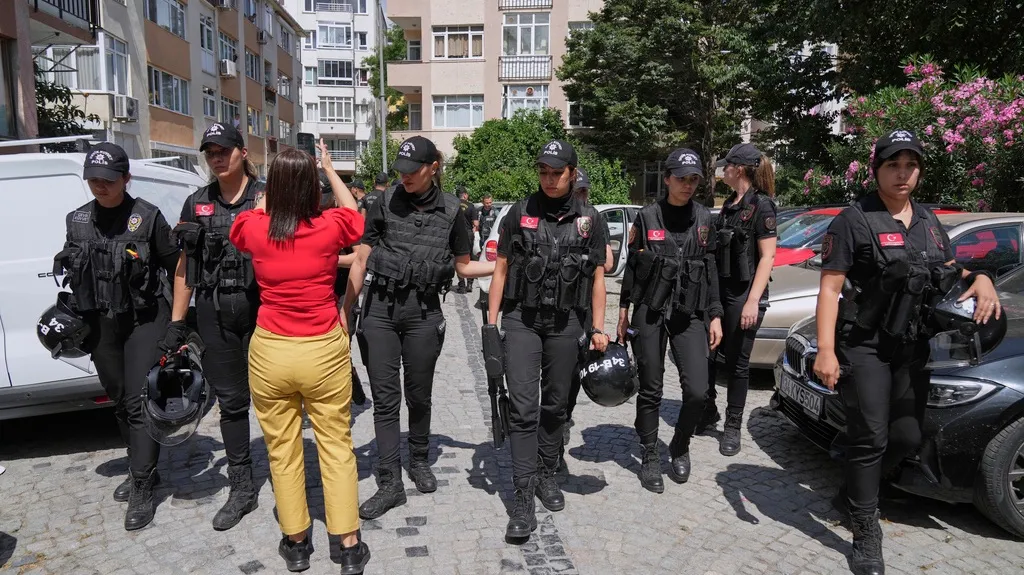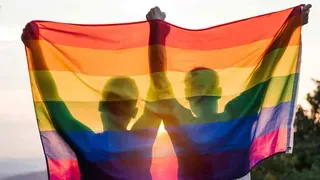August 4, 2014
Gay Marriage Arguments Ring a Bell in Cincinnati
Jason St. Amand READ TIME: 3 MIN.
For Chris Seelbach, the legal challenges to state bans on gay marriage being argued this week in federal appeals court in Cincinnati mark another milestone - not just for gay rights, but for the city he calls home.
He campaigned a decade ago to repeal a 1990s charter amendment that banned the city from protecting people from discrimination in housing, employment and other matters based on sexual orientation, a measure that was widely viewed as making gays and lesbians feel unwelcome. Three years ago, he was elected as Cincinnati's first openly gay councilman.
"I don't know that there's another city in the nation that has come further than Cincinnati," said Seelbach, 34. "We've come from being perhaps the most anti-gay city to one that's doing everything it can on equal rights."
Six challenges to gay marriage bans and restrictions in Ohio, Michigan, Kentucky and Tennessee are before the 6th U.S. Circuit Court of Appeals, which decided to hear all of them in one session Wednesday in one of the most important days yet in the wave of legal efforts around the country to overturn marriage bans.
Cincinnati attorney Al Gerhardstein, who won U.S. district court rulings against Ohio's ban in two cases being appealed by the state, says it will "a historic day for Cincinnati," not only for hosting the court cases, but also for spotlighting changes in the city.
"Actually, Cincinnati can offer some reassurance to people that once they get used to the idea that same-sex people get equal rights, the sky doesn't fall," Gerhardstein said. "We simply have a more diverse city."
An opponent of same-sex marriage who championed the repealed charter amendment questioned how historic the arguments here will be, saying the issue will eventually be decided by the U.S. Supreme Court. Phil Burress, leader of the Citizens for Community Values organization based in suburban Sharonville, said the cases seek to overturn popular votes - Ohioans approved the same-sex marriage ban in a 2004 statewide vote - and usurp states' rights.
"I have considered this from the beginning a Hail Mary pass for those who want same-sex marriage - to try to get the courts to force it upon Americans," Burress said.
He also still defends the repealed charter amendment, saying it was against treating "homosexual behavior as a minority class."
"Cincinnati became known nationwide as a city with an 'anti-gay' law," The Cincinnati Enquirer stated in a 2004 editorial, saying the "damage has been pervasive and expensive."
Gay people were leaving town or refusing jobs in Cincinnati, the city lost tens of millions of dollars in convention business from groups who canceled plans, and convention officials said other groups informed them they wouldn't consider holding conventions here because of the perceived hostility to gay people.
Coming in the aftermath of 2001 race riots that led to a convention boycott over police treatment of blacks, the campaign to repeal the charter amendment added to an image of intolerance.
"I think people decided, 'That's really not how we want to see ourselves,'" Gerhardstein said.
Seelbach credits years of door-to-door campaigning, talking to people face-to-face and explaining the need for equal protections. Key business leaders worked together to push for change. Voters supported the 2004 charter repeal, in 2005 Mark Mallory became the first directly elected black mayor, the city hired its first black police chief in 2011, and Seelbach was elected that year and re-elected in 2013.
More subtly, "Star Trek" actor and gay rights advocate George Takei served as grand marshal last year of the city's popular Oktoberfest Zinzinnati celebration. And Mayor John Cranley recently addressed another area for diversity, launching an initiative aimed at making Cincinnati "the most immigrant-friendly city" in the country.
Meanwhile, people on both sides of the same-sex marriage issue plan demonstrations in Cincinnati this week. A major outdoor rally is planned Tuesday evening in support of gay rights.
"I think Cincinnati like every other part of Ohio and, quite frankly, every other part of the country has seen a dramatic shift in public opinion," said former Ohio Gov. Ted Strickland, a Democrat who will speak at that rally. " ... And so I don't think that we can take what's happened in the past - even in the rather recent past - and assume that it reflects public attitudes today."
Burress' group has urged prayer vigils urging the judges to uphold marriage defined as between a man and a woman. He said during the arguments, people will walk and pray quietly outside the downtown federal court building.
"We're on the defense," Burress said. "We're defending the institution of marriage."




